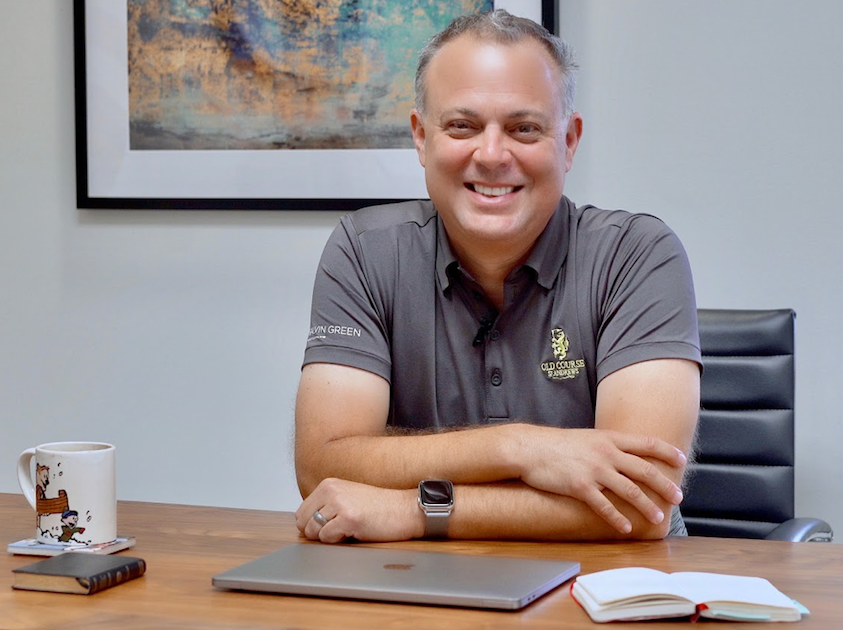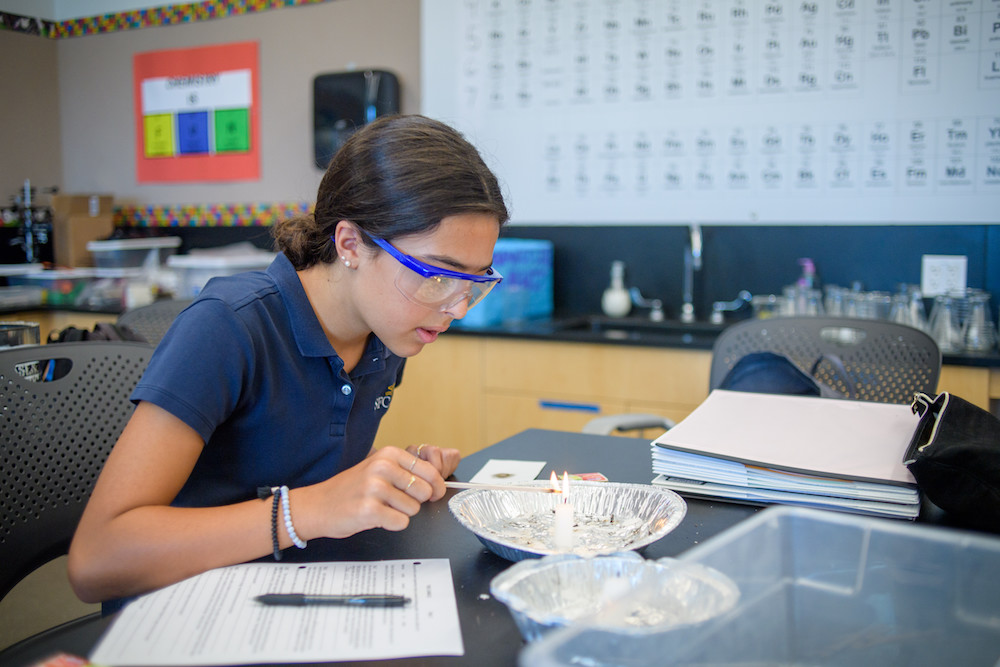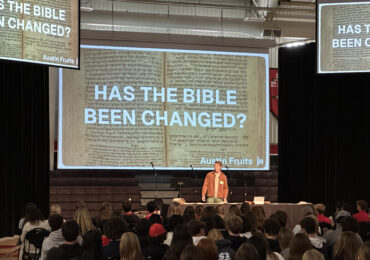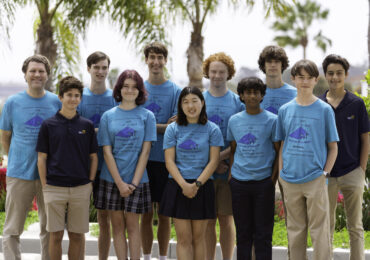Education is Sacred
Catalyzing faith, goodness, and beauty, Rod Gilbert, Head of Schools at Santa Fe Christian, distinguishes the value of Christian education, particularly in the tenuous times at hand. With the many unknowns of the current COVID-19 crisis, the “value proposition for Christian schools stronger than it’s ever been…Families are looking for a partner that will accentuate their faith (within) their home, while also teaching reading, writing, and arithmetic.”
“Everything is sacred,” Gilbert says. “We don’t want to do our spiritual talk part of the day and then the non-spiritual talk the rest of the day,” he says. In everything, “we want to mentor kids to love the Lord and to love the world that he created. That is the fundamental axiom of why a Christian School has such a unique niche in our world today.”
Emphasizing Whatever is Good, Beautiful, and True
Gilbert’s personal and educational philosophy emphasizing “whatever is good, beautiful, and true” directly impacts his leadership and vision for Santa Fe Christian. “So much of our world today, you turn on the news or you listen to the hyper-intensity of talking heads and people around the world, they focus on the faults, the bad and the ugly, and it’s almost the downtrodden spirit that the world accentuates,” Gilbert says. “I could teach children or teenagers to avoid the faults, the bad, and the ugly. I could teach them how to avoid it. But I do believe if we quicken children’s curiosity and spirit about the true, good, and the beautiful, it’s actually quite lovely.”
“The way that God’s order works is amazing,” he says. “If we point to the beauty of mathematics, the beauty of scientific thinking, the beauty of the scientific method, the goodness of good ethics of how to treat people kindly,” it invokes students’ eagerness to ask, “what does it mean that there’s absolute truth in the universe? What does it mean that there are facts that we follow?”
Cultivating Common Bonds Through Christian Education
How does a Christian education help prepare students for the realities of living in a polarized world? Christian education teaches the “common bond of human experience” and equips students to excel in rapidly changing contexts, with Biblical truths and faith as their anchor.
“We want to teach children based on the Imago Dei, which means the image of God,” Gilbert says. The very concept of Imago Dei makes each child “important and valuable in the universe,” he says. “When they go out into the world, I want them to see every human being as carriers of the image of God in each person, even if they’re not a Christian believer.”
Christian education influences students to better contribute to society. Gilbert wants students “to go out into the world, whether they work in a law firm or a plumbing company, or as a police officer, whatever it is that they do, to have a sense of humble appreciation for what God’s done for them. And to have a humble and kind appreciation for all human beings around them.” In these tumultuous times, humility and kindness need “to be cultivated more and more and more,” Gilbert reiterates. “I think that’s one of the reasons that families are turning more to Christian education now.”
Want to hear more? Listen to Rod dive into the value of Christian education on our podcast.
Gilbert’s focus on the good and beautiful propels the educational experience beyond academics, generating a contagious spiritual enthusiasm in both staff and students. “If we, the adults on campus, spend far more time as human beings, the aroma of our love for the true, good, and the beautiful gets picked up by the children.” Students “see that we’re excited about these things. And as one poet said, they will catch joy from our joy,” Gilbert says.
“The world is God’s world,” Gilbert continues. Gilbert’s philosophy unites education and faith as a marriage created by God. “Whether we’re talking math, or science, or how to craft a beautiful sentence, anything else, athletics, it’s all part of God’s created order.” In some Christian schools, faith can become compartmentalized, “sort of an add-on.” To Gilbert, academics and faith are integrated. For instance, “math is a universal language that God created. And Christ is the creator of all things, according to Colossians 1.”
What should you consider when choosing a school? Learn here.
Gilbert’s holistic philosophy toward faith and education stirs excitement and exploration. “We get to explore God’s created order and the wonder of his creation with children every day. And what we want to do is spark an interest in them to go and discover the amazing things that are out there,” he says. “I mean, every single day, we get to awaken their imagination, whether it’s through literature, or the Fibonacci sequence and mathematics, or migration of birds, anything. It’s this created order that’s beautiful.”





